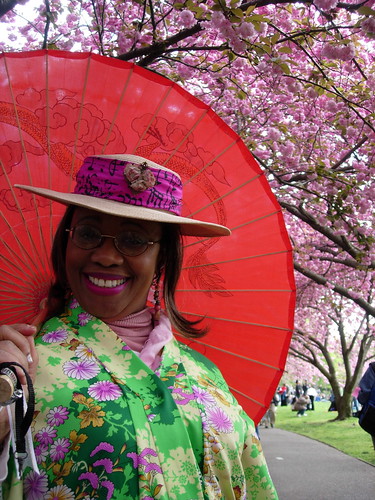
This article, by Kwame Anthony Appiah, inspired me to start thinking about tolerance and pluralism. In thinking about it, I noticed that I seem to have a very similar argument over and over. The strange thing is that similarity of background is not a good predictor of agreement. I find more commonality on this subject with an Iraqi I talk to over the internet than I do with American acquaintances of mine.
Here’s an example of the repeating argument. I was fighting with one of the people who used to live in my house about immigration. My fundamental position is: I like it. Even illegals don’t bother me. This is not an economic position, but an emotional one, and I know that unless perfect justice exists in the world unrestricted immigration isn’t feasible. But the thought of waves of immigrants coming to this country is simply exciting to me.
My former roommate’s opinion was that illegal immigrants should be thrown out, that immigration control and enforcement should be tightened, that government-supported bilingual information lines and forms should be discontinued. So it goes without saying that we were unable to come to an agreement.
Finally, he said in disgust, “If you lived 500 years, and gradually the American language turned to Spanish, and all your customs were swept away, you wouldn’t care.” The tone of his voice made it clear that he was describing an abhorrent situation. But my immediate reaction was, “That’s exactly right.” But my own culture
is precious to me, as is my country. I want to live according to my ideas of what is right, and I love the image of America I was taught in elementary school: a land of freedom, the fair rule of law, equal opportunity, and justice.
But if the majority of citizens of that country choose, in the future, to enshrine the cuckoo as the national bird, speak Esperanto, and worship Hostess Ding Dongs, more power to them. The centrality of my identity as an “American” has nothing to do with the ethnic trappings of culture at all. I cannot deny other Americans the right to the same freedoms I claim for myself, because to me being “American” is an ideology and not an ethnicity.
The thought that is so beautifully argued in the
article, (which I link to again because it is well worth reading) is this: cultures are not pure. They are not sacred. And they do not have a right to exist. They will mix, shift, cast off old traditions, create or borrow new ones. And lived culture (distinct from cultural arts and languages) is only valuable to the extent that it appeals to the people who are a part of it. My culture is good for me, but I have no authority to tell others to ascribe to any part of it. My right is to live as I wish, as long as I don’t impinge others’ ability to do the same.
This means that I should be very tolerant. But in practice, sometimes when I have had these arguments, I sense myself stiffening up with an absolute inflexibility. Something in the discussion makes me hard and unmoving, and it’s very uncomfortable. There is an apparent inconsistency there. That is where Appiah’s article interests me so. It clarified for me that it is when I encounter an unwillingness to allow others this freedom that I claim for myself, that I discover my uncompromising core. Be it a discussion of family law, or national dress, gay rights, the establishment of an official language: anything that seems to impose a set of values that apply to all people gets my back up.
The most important point in the article, to me, is a simple one. There is no ideology, no culture, no language, on which we can legitimately ask all the people of the world to agree. Therefore, the only way we will learn to get on together is to get used to each other. Get used to living next to, among, people whose ideas and practices we could never accept for ourselves.
That’s why, as a tolerant pluralist, there is no contradiction in arguing for universal female suffrage, equal access to education regardless of race or sex, laws that give equal power in marriage and equal requirements for dress, regardless of the fact that some cultures consider any or all of these things abhorrent. Individual liberty is more important than cultural integrity.
But I must accept, for example, that some women have no desire to show their face to any man but their husband. I may vehemently disagree with a culture that requires this of them, but I must allow them the freedom to choose what I would not. That is all that matters. The absolute freedom of the choice.

